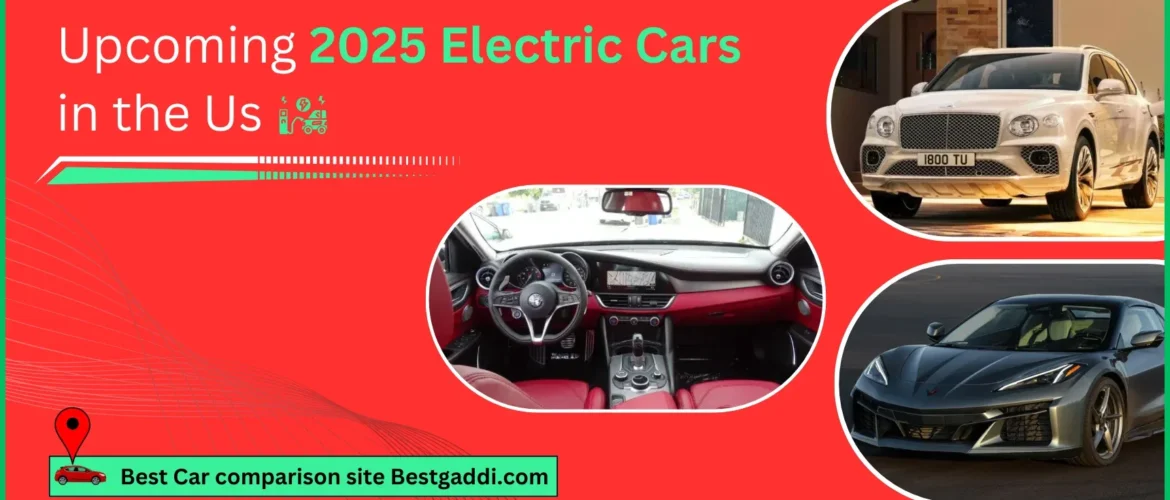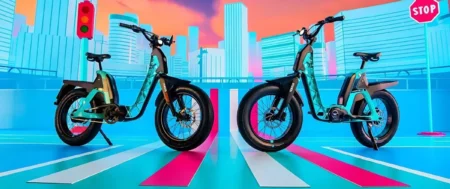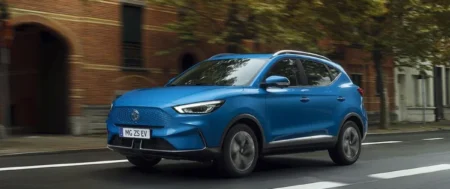The automotive world is electrifying, quite literally, and 2025 Electric Cars is set to be a monumental year for electric vehicles (EVs). With giants like Alfa Romeo, Bentley, Chevrolet, and Nissan joining the electric revolution, car enthusiasts and eco-conscious drivers alike have much to look forward to. This article delves into what makes these 2025 electric cars special, covering everything from their cutting-edge technology to their breathtaking designs. Buckle up as we explore the future of driving!
Stay ahead of the curve with the latest 2025 electric cars in the US! Explore upcoming models now and find your perfect EV
Table of Contents
The Rise of Electric Vehicles in 2025
Why 2025 is a Pivotal Year for EVs
2025 is shaping up to be a turning point for electric vehicles. With stricter emissions regulations and the global push towards sustainability, automakers are racing to launch electric models that meet the demands of both performance and eco-friendliness. Consumers are also more informed and eager to reduce their carbon footprint, making the year 2025 a critical time for the EV market.
What’s Driving the Shift to 2025 Electric Cars?
Several factors are propelling the shift to 2025 electric cars, including advancements in battery technology, government incentives, and a growing awareness of environmental issues. Moreover, the increased availability of charging infrastructure has made it easier than ever to own and operate an EV, paving the way for its widespread adoption.
Suggested Blogs: Best 5 Electric SUV 2024 in the US
Alfa Romeo Giulia: Tradition Meets Innovation




Design and Aesthetics
Exterior
The Alfa Romeo Giulia, a name synonymous with Italian elegance, is embracing the electric future without losing its iconic charm. The 2025 model retains its sleek, aerodynamic lines but adds futuristic touches that hint at its electric heart. From the sculpted front fascia to the elegant rear, the Giulia’s design is a blend of tradition and innovation.
Interior
Inside, the Giulia is a sanctuary of luxury. The cabin features premium materials, a minimalist dashboard, and advanced digital displays that keep the driver informed while maintaining a clean and sophisticated look. It’s a perfect harmony of classic Alfa Romeo styling with the latest in automotive technology.
Performance and Powertrain
Alfa Romeo is known for its performance, and the Giulia EV doesn’t disappoint. The 2025 model is expected to offer a dual-motor setup that delivers impressive acceleration and handling, staying true to the brand’s sporty reputation. The electric powertrain promises not only zero emissions but also a driving experience that’s both thrilling and efficient.
Technology and Features
The Giulia EV is packed with technology aimed at enhancing both the driving experience and passenger comfort. From adaptive cruise control to an intuitive infotainment system, the 2025 Giulia is designed for the modern driver who values both style and substance.
Suggested Blogs: Top Electric Vehicles 2024 in the US: Recharge Your Future
Bentley Electric SUV: Luxury Redefined
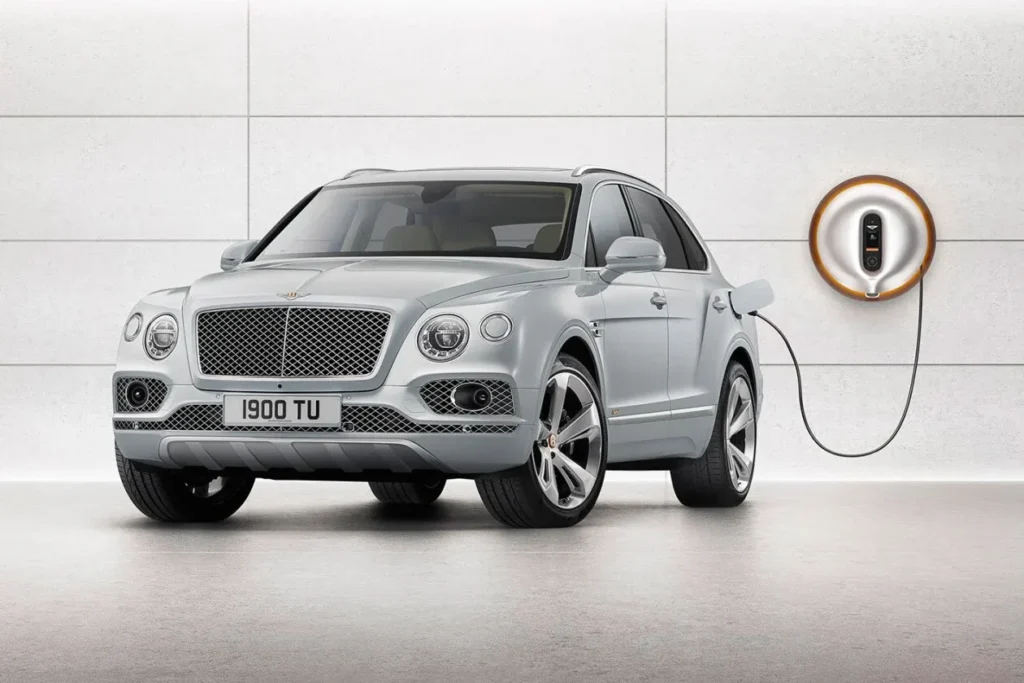

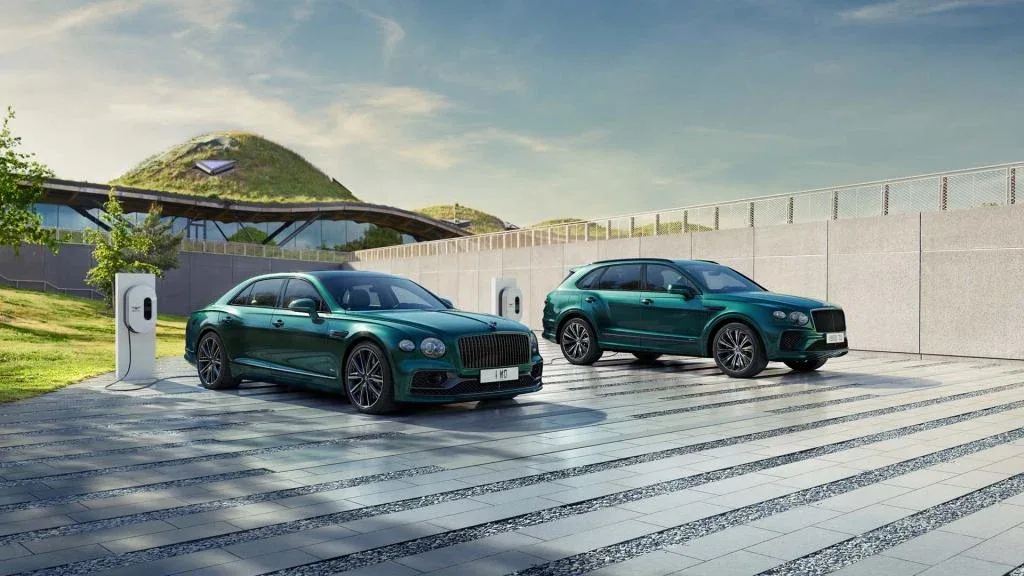
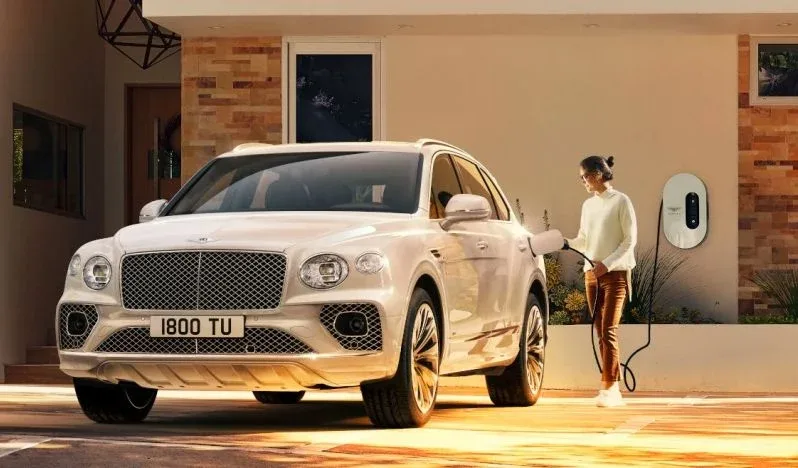
Luxury Meets Sustainability
Bentley’s entry into the electric market is nothing short of spectacular. The 2025 Bentley Electric SUV combines the brand’s signature luxury with cutting-edge electric technology. This isn’t just an SUV; it’s a statement that opulence and sustainability can coexist.
Engine and Performance
Under the hood, or rather the floor, the Bentley Electric SUV features a state-of-the-art battery system that delivers incredible range and performance. It’s designed to offer a smooth and silent ride, with the power and agility that Bentley is known for.
Battery Life and Range
Bentley has ensured that their first electric SUV is as practical as it is luxurious. With an expected range of over 300 miles on a single charge, this vehicle is perfect for long journeys, making it a serious contender in the luxury electric market.
Interior and Comfort
Step inside the Bentley Electric SUV, and you’re greeted by a world of comfort and refinement. The interior is adorned with the finest materials, from hand-stitched leather to polished wood accents. It’s an environment where every detail has been considered to provide an unparalleled driving experience.
Suggested Blogs: The most iconic 16 Hollywood cars | Pop Culture Revamp
Chevrolet Corvette EV: Power in a New Avatar
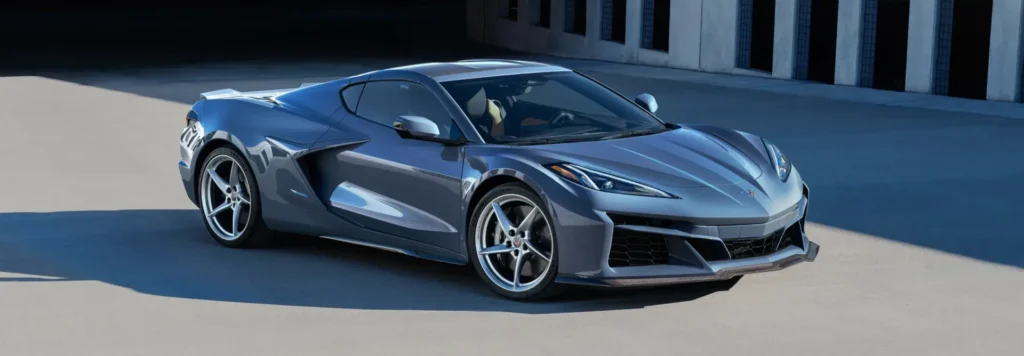

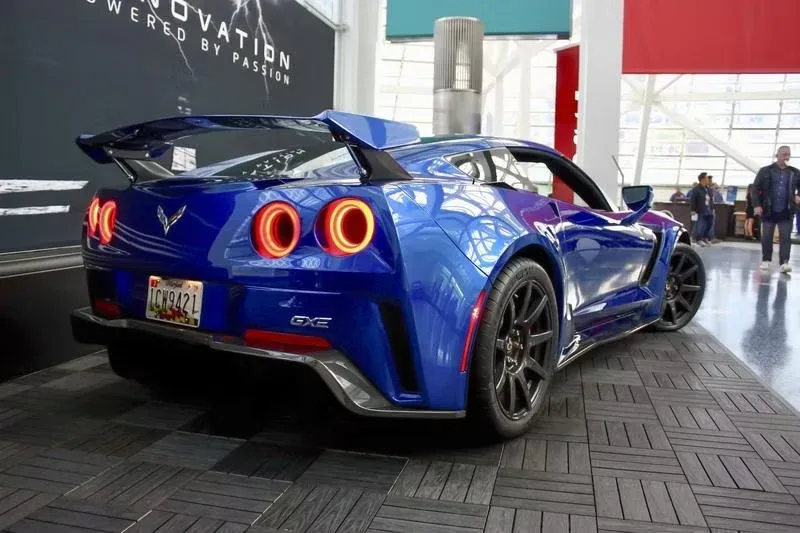
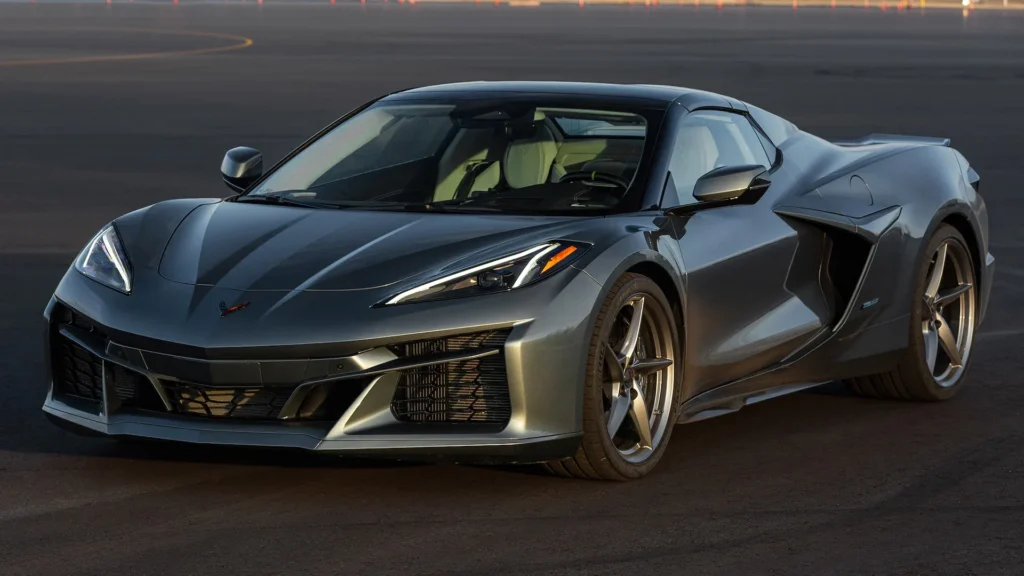
Sporty Design
The Corvette is an American icon, and its transition to electric power has been eagerly anticipated. The 2025 Chevrolet Corvette EV retains the aggressive styling that has made it a legend, but with a modern twist that reflects its new electric identity. Sharp lines, bold colors, and an unmistakable presence on the road make the Corvette EV a head-turner.
High-Performance Electric Power
Chevrolet has taken great care to ensure that the Corvette EV lives up to its performance heritage. The electric drivetrain delivers instant torque, propelling the car from 0 to 60 mph in under 3 seconds. This is a vehicle that proves going green doesn’t mean sacrificing speed or excitement.
Speed and Acceleration
Speed enthusiasts will be thrilled with the Corvette EV’s capabilities. The seamless acceleration offered by its electric motors provides a driving experience that’s both exhilarating and responsive, making it one of the fastest cars in the electric segment.
Innovative Features
In addition to its performance, the Corvette EV is packed with innovative features. From advanced driver-assistance systems to a cutting-edge infotainment interface, this car is as smart as it is fast. It’s a perfect blend of American muscle and modern technology.
Suggested Blogs: Best Electric Cars 2024 in the US
Nissan Leaf: The Pioneer Continues to Evolve
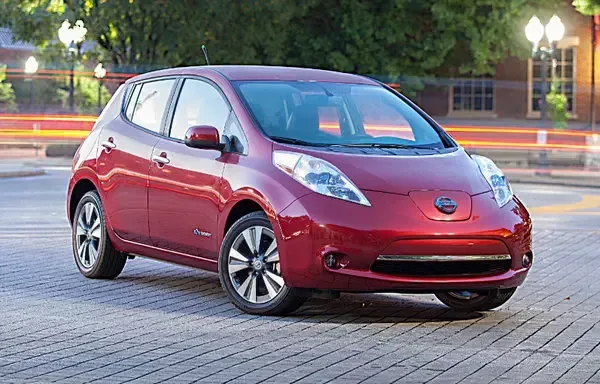

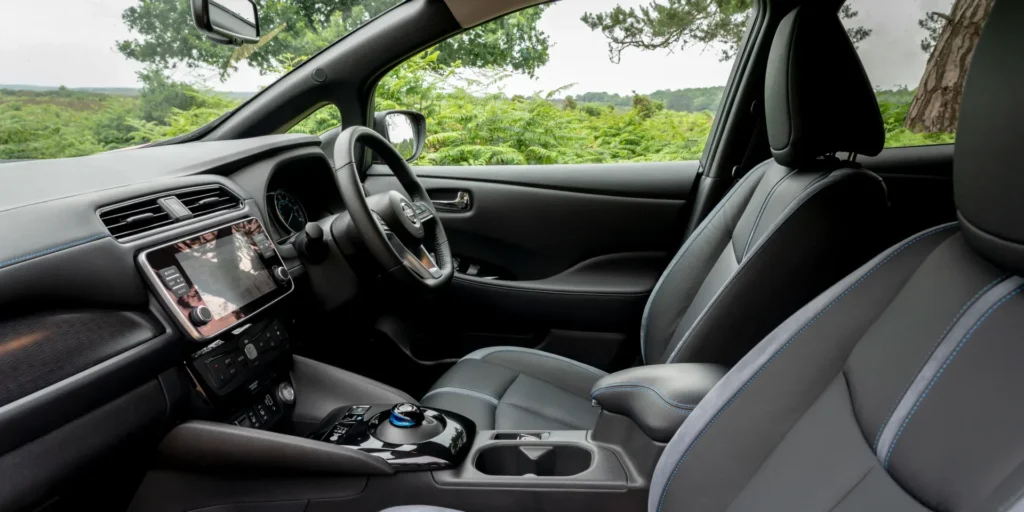

Design and Usability
The Nissan Leaf has long been a leader in the electric vehicle market, and the 2025 model continues this legacy. With a fresh design and enhanced usability features, the Leaf remains a practical choice for those looking for an affordable and efficient electric car.
User-Friendly Features
Nissan has focused on making the Leaf as user-friendly as possible. Features like a spacious interior, intuitive controls, and advanced connectivity options make it an easy and enjoyable car to drive, whether you’re commuting to work or embarking on a road trip.
Efficiency and Range
The 2025 Nissan Leaf offers improved efficiency, with a range that rivals more expensive competitors. It’s designed to be an everyday car that meets the needs of modern drivers, combining low running costs with high reliability.
Safety and Reliability
Safety has always been a priority for Nissan, and the Leaf is no exception. The 2025 model comes equipped with the latest safety features, including automatic emergency braking, lane-keeping assist, and a comprehensive airbag system, making it one of the safest electric cars on the road.
Comparing the 2025 Electric Cars
Performance
When it comes to performance, each of these 2025 electric cars offers something unique. The Alfa Romeo Giulia is all about sporty elegance, the Bentley Electric SUV combines luxury with powerful electric performance, the Chevrolet Corvette EV is built for speed, and the Nissan Leaf offers practical efficiency.
Technology
Technologically, these vehicles are at the forefront of the industry. From Alfa Romeo’s driver-centric features to Bentley’s luxurious tech, Chevrolet’s innovative infotainment, and Nissan’s user-friendly interfaces, each car provides a cutting-edge experience.
Price and Affordability
While the Bentley Electric SUV and Chevrolet Corvette EV cater to the higher end of the market, the Alfa Romeo Giulia and Nissan Leaf offer more accessible options, ensuring that there’s an electric car for every budget in 2025.
What to look at before buying electric cars in 2025
When buying an electric car in 2025, there are several key factors to consider to ensure you make the right choice for your needs. Here’s what to look for:
1. Range
- Battery Range: Check the car’s range on a single charge, which determines how far you can travel without needing to recharge. Consider your daily commute and typical driving habits to ensure the range meets your needs.
2. Charging Infrastructure
- Availability of Charging Stations: Research the availability of charging stations in your area and along your regular routes. Access to fast chargers is particularly important for long-distance travel.
- Home Charging Options: Ensure you have the capability to install a home charger, which offers the convenience of charging overnight.
3. Battery Life and Warranty
- Battery Longevity: Investigate the expected lifespan of the car’s battery. Manufacturers often provide warranties for a certain number of years or miles, which can give you peace of mind.
- Warranty Coverage: Look for cars with robust battery warranties that cover potential degradation over time.
4. Performance
- Acceleration and Handling: Electric cars often offer instant torque, providing quick acceleration. Test drive the car to assess how it handles and if it meets your performance expectations.
- Powertrain Options: Some models offer multiple powertrain configurations, such as single motor vs. dual motor, which can affect performance and efficiency.
5. Technology and Features
- Infotainment System: Modern electric cars come equipped with advanced infotainment systems, including navigation, smartphone integration, and voice controls. Ensure the system is user-friendly and meets your needs.
- Driver Assistance Systems: Consider the availability of advanced driver assistance features such as adaptive cruise control, lane-keeping assist, and autonomous driving capabilities.
6. Cost of Ownership
- Purchase Price: While electric cars can have a higher upfront cost, consider the long-term savings from lower fuel and maintenance costs.
- Incentives and Rebates: Look for government incentives or rebates that can reduce the purchase price of the car.
- Maintenance Costs: Electric cars typically have fewer moving parts than traditional vehicles, leading to lower maintenance costs. Research the expected maintenance expenses for the model you’re considering.
7. Brand Reputation and Reliability
- Manufacturer Reputation: Choose a car from a manufacturer known for producing reliable vehicles. Check reviews and ratings from current owners to gauge satisfaction and reliability.
- After-Sales Service: Consider the availability and quality of after-sales service and support from the manufacturer or dealer.
8. Interior Space and Comfort
- Cabin Space: Ensure the car has enough space for you, your passengers, and your cargo. Pay attention to legroom, headroom, and storage capacity.
- Comfort Features: Look for features such as heated seats, climate control, and high-quality materials that contribute to a comfortable driving experience.
9. Environmental Impact
- Sustainability: Consider the car’s overall environmental impact, including how the batteries are sourced and whether the manufacturer is committed to sustainable practices.
10. Resale Value
- Depreciation: Research the expected depreciation of the model. Some electric cars retain their value better than others, which is important if you plan to sell the car in the future.
By carefully evaluating these factors, you can make an informed decision and choose an electric car in 2025 that fits your lifestyle and preferences.
Which type of battery used in 2025 electric cars
The type of battery used in 2025 electric cars is a crucial component that significantly impacts the vehicle’s performance, range, and overall efficiency. Here are some of the most commonly used battery technologies in 2025 electric cars:
1. Lithium-Ion Batteries
- Overview: Lithium-ion (Li-ion) batteries continue to be the dominant technology in 2025 due to their high energy density, long cycle life, and relatively lightweight.
- Benefits: They provide a good balance between cost, performance, and longevity, making them ideal for most electric vehicles (EVs).
- Use Cases: Most mainstream electric cars, including those from Tesla, Nissan, and other leading manufacturers, utilize lithium-ion batteries.
2. Solid-State Batteries
- Overview: Solid-state batteries represent a significant advancement over traditional lithium-ion batteries. Instead of a liquid electrolyte, they use a solid electrolyte, which improves safety and energy density.
- Benefits: They offer higher energy density, faster charging times, and a longer lifespan. They are also less prone to overheating and are safer than Li-ion batteries.
- Use Cases: While still emerging, some high-end models and concept cars in 2025, such as luxury vehicles from brands like BMW and Mercedes-Benz, are beginning to incorporate solid-state batteries.
3. Lithium-Iron Phosphate (LFP) Batteries
- Overview: LFP batteries are a type of lithium-ion battery that uses iron phosphate as the cathode material. These batteries are known for their durability and safety.
- Benefits: They have a longer cycle life and are more stable at higher temperatures. Although they have a lower energy density than other lithium-ion batteries, they are cost-effective and safer.
- Use Cases: LFP batteries are commonly used in budget-friendly and mass-market electric cars, especially those focusing on affordability and longevity, such as models from BYD and some Tesla variants.
4. Nickel-Cobalt-Manganese (NCM) Batteries
- Overview: NCM batteries are another variation of lithium-ion batteries, using a combination of nickel, cobalt, and manganese in the cathode.
- Benefits: These batteries offer a good balance of energy density, power output, and safety. They are widely used due to their efficiency and the ability to deliver high performance.
- Use Cases: High-performance electric vehicles like sports cars and luxury EVs often use NCM batteries for their superior performance characteristics.
5. Nickel-Cobalt-Aluminium (NCA) Batteries
- Overview: NCA batteries are similar to NCM batteries but use aluminum instead of manganese. This composition offers higher energy density and longer lifespan.
- Benefits: NCA batteries are known for their excellent energy density and durability, making them ideal for long-range electric vehicles.
- Use Cases: Tesla, known for pushing the boundaries of EV technology, often uses NCA batteries in its high-end models like the Model S and Model X.
6. Graphene-Based Batteries (Emerging Technology)
- Overview: Graphene batteries are an emerging technology that could revolutionize the EV industry. They use graphene as a component, which allows for faster charging and higher energy density.
- Benefits: These batteries promise ultra-fast charging, higher capacity, and extended lifespan. However, they are still in the experimental or early adoption stages.
- Use Cases: As of 2025, some concept cars and limited-edition models might experiment with graphene-based batteries, but they are not yet mainstream.
7. Lithium-sulfur (Li-S) Batteries (Emerging Technology)
- Overview: Lithium-sulfur batteries are another emerging technology, offering much higher energy density than traditional lithium-ion batteries.
- Benefits: Li-S batteries have the potential to significantly increase the range of electric vehicles while being lighter and more cost-effective. However, challenges remain in terms of their durability and cycle life.
- Use Cases: While not yet widely available, some high-tech, experimental electric vehicles might feature Li-S batteries as manufacturers work to overcome the remaining technical hurdles.
In 2025, most electric cars still rely on advanced lithium-ion batteries, but we are seeing the introduction of new technologies like solid-state and graphene-based batteries, particularly in premium and concept models. These advancements are paving the way for the next generation of electric vehicles with improved range, safety, and performance.
Conclusion: The Future is Electric
2025 Electric Cars is set to be a defining year for electric vehicles, with exciting releases from some of the most respected names in the automotive industry. Whether you’re drawn to the elegance of the Alfa Romeo Giulia, the luxury of the Bentley Electric SUV, the speed of the Chevrolet Corvette EV, or the practicality of the Nissan Leaf, there’s an electric car for everyone. The future of driving is not just electric; it’s exhilarating.
FAQs
1. What is the expected range of the 2025 Bentley Electric SUV?
The 2025 Bentley Electric SUV is expected to offer a range of over 300 miles on a single charge.
2. How fast can the 2025 Chevrolet Corvette EV accelerate?
It can accelerate from 0 to 60 mph in under 3 seconds.
3. Is the 2025 Alfa Romeo Giulia EV maintaining its traditional design?
Yes, it retains its classic design with modern electric touches.
4. What makes the 2025 Nissan Leaf a practical choice?
Its improved range, user-friendly features, and advanced safety technologies make it practical.
5. Are these 2025 electric cars eco-friendly?
Absolutely! All these 2025 electric cars are designed to reduce emissions and promote sustainability, making them eco-friendly choices.
6. How long does it take to charge a 2025 electric car battery?
Charging times vary depending on the battery type, the car’s charging system, and the power source. With a fast charger, many 2025 electric cars can achieve an 80% charge in about 30 minutes, while charging from a standard home outlet may take several hours or overnight.
7. What is the lifespan of a 2025 electric car battery?
The lifespan of electric car batteries has improved significantly, with many 2025 models offering warranties of 8 to 10 years or around 100,000 to 150,000 miles. Advances in battery technology, such as solid-state batteries, are expected to further increase longevity.
8. Are 2025 electric car batteries recyclable?
Yes, the batteries used in 2025 electric cars are recyclable. Manufacturers and third-party companies are developing more efficient recycling processes to recover valuable materials like lithium, cobalt, and nickel, reducing the environmental impact.
9. How does cold weather affect 2025 electric car batteries?
Cold weather can reduce the efficiency and range of electric car batteries. However, 2025 models are equipped with advanced thermal management systems that help mitigate these effects, ensuring better performance in colder climates.
10. Can I upgrade the battery in my 2025 electric car in the future?
Upgrading a battery is technically possible, but it depends on the car’s design and manufacturer support. Some manufacturers may offer battery upgrades or replacements, but it’s important to check with the specific brand for compatibility and availability.
